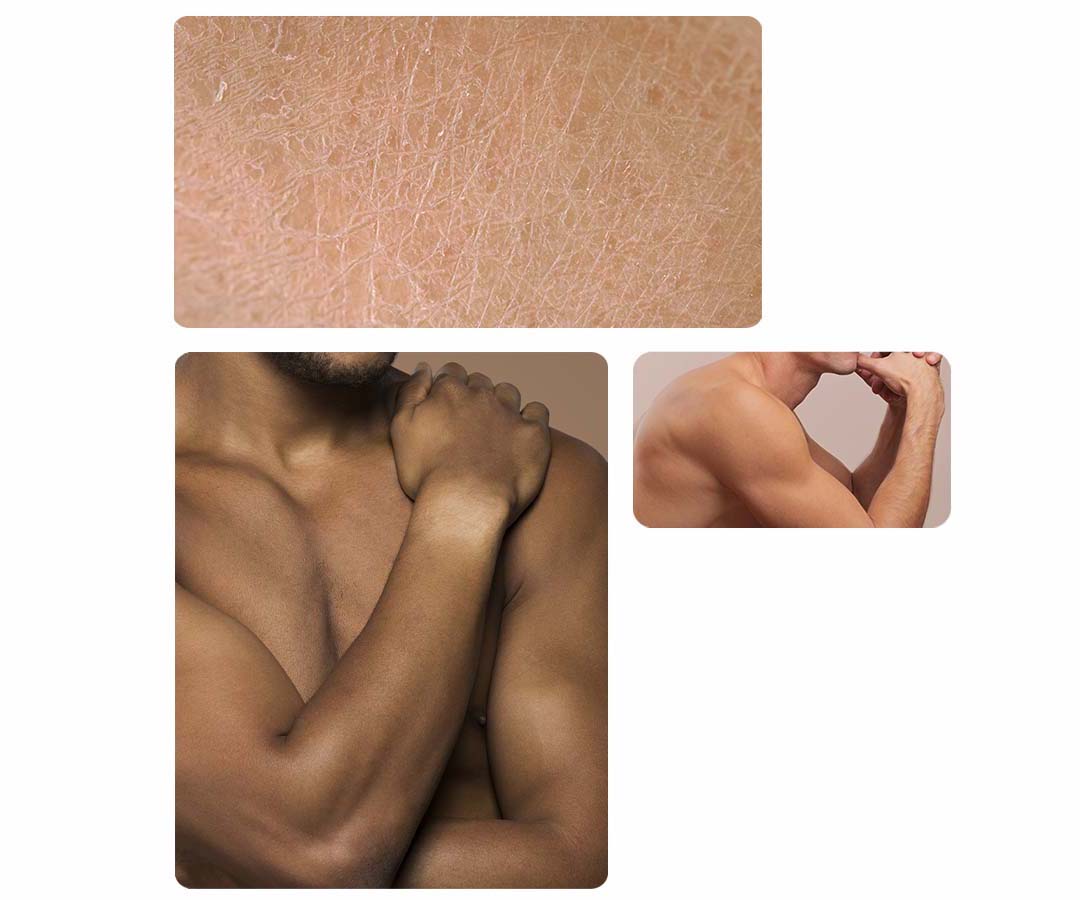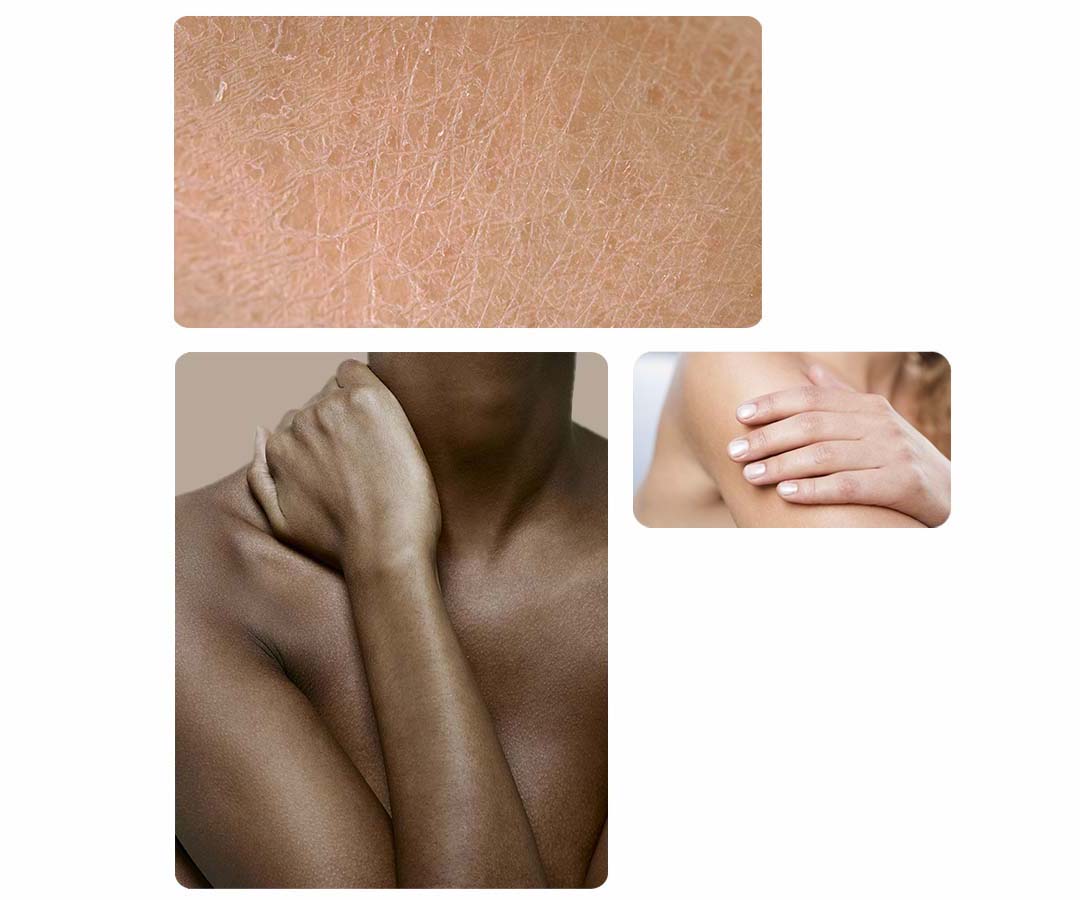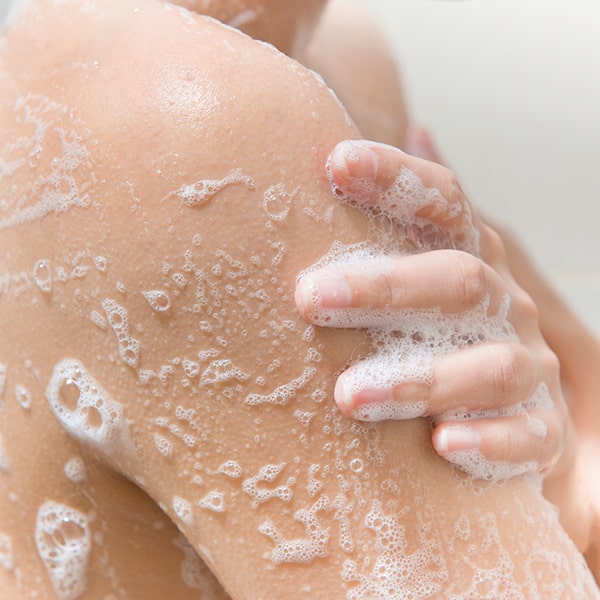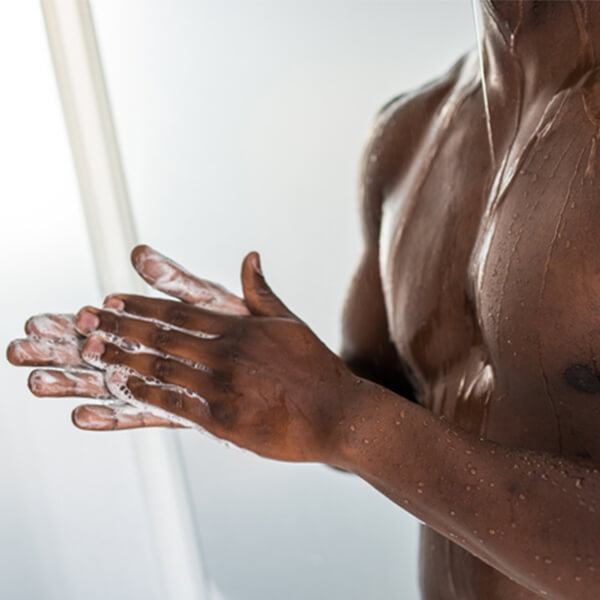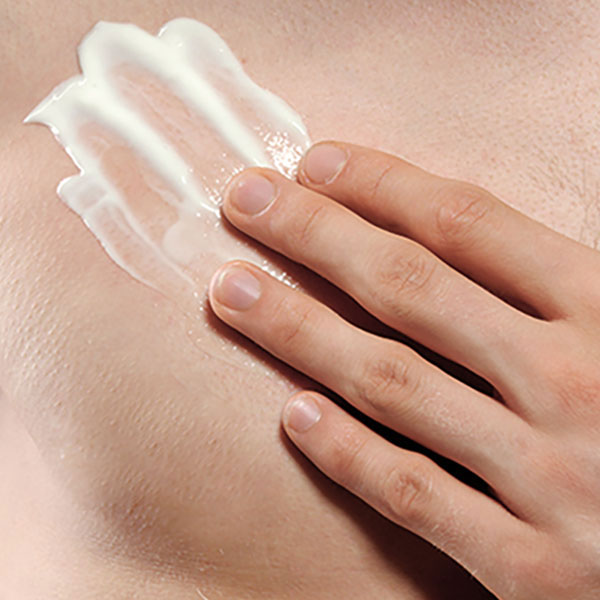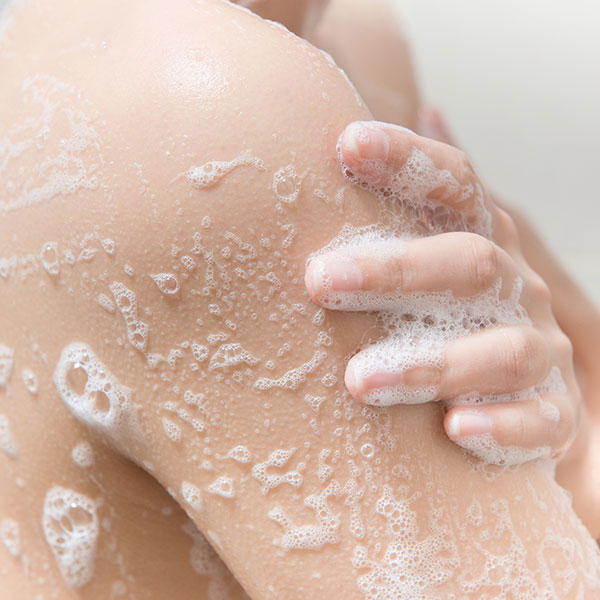YOUR RESULTS
You have dry skin
Dry skin lacks moisture, which can leave it dull and more prone to wrinkles, skin conditions and allergic reactions. Skin components including lipids and proteins form a barrier to lock in moisture, and if these are damaged, moisture evaporates, and skin becomes dry.
Your skin needs extra moisture to help strengthen and replenish its protective barrier. Look for hydrating, water-based products that gently cleanse and deeply moisturise it while respecting its natural pH balance and helping it to regenerate.
Take special care of your skin in hot, cold or windy weather to prevent it from getting chapped or irritated.







